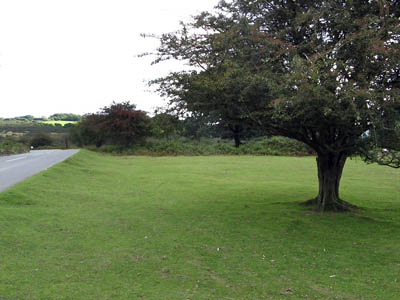
Crownhill Down, Dorset
Campaigners have expressed dismay at a decision to fence off common land near the Dartmoor national park.
A planning inspector gave approval for the erection of stock fencing on Crownhill Down, near Plympton in Devon, 2km (1¼miles) west of the Dartmoor park boundary. Objectors to the plan say it will hinder walkers and horse riders.
Any works, including fences, on common land in England need the approval of the Environment Secretary. This is usually delivered via the Planning Inspectorate on his behalf.
The landowners applied to put up the fencing on the western side of the road between Lee Moor and Newnham because, they said, the land was being abused by motor vehicles. Fencing in the common would help protect the environment, regenerate the habitat and aid agricultural management.
The Open Spaces Society, Dartmoor Preservation Association, Dartmoor Society, the Ramblers and Shaugh Prior Parish Council objected to the plans. These included the installation in the fence of ladder stiles and gates.
But planning inspector Gina Warman said: “The proposals will have an adverse impact on equestrian access but the conclusion reached is that the impact will be outweighed by the benefits of the proposals.”
Kate Ashbrook, general secretary of the Open Spaces Society, said: “We considered the fencing would be visually intrusive and detract from the open character of the common. It would restrict people’s rights to walk and ride over the whole area.
“The Dartmoor Society also pointed out that it would cut across a remarkable archaeological feature, a documented medieval and later tinwork.
“While we accept that it would be beneficial for motor vehicles to be excluded, we felt that fencing was not the best solution. For instance, we argued that there should be an earth bank and ditch to deter people from driving vehicles onto the common.
“We also said that, if the fencing were to be approved, we would want more gates for easy access; the applicants propose to install four gates and five ladder stiles. The latter are difficult to cross and will be an impediment to riders and some walkers.”
Ms Warman did not rule that gates be installed instead of stiles.
Expressing the OSS’s disappointment Ms Ashbrook said: “Clearly it was a difficult and close-run decision, and we are sad the inspector came down in favour of the fencing.”